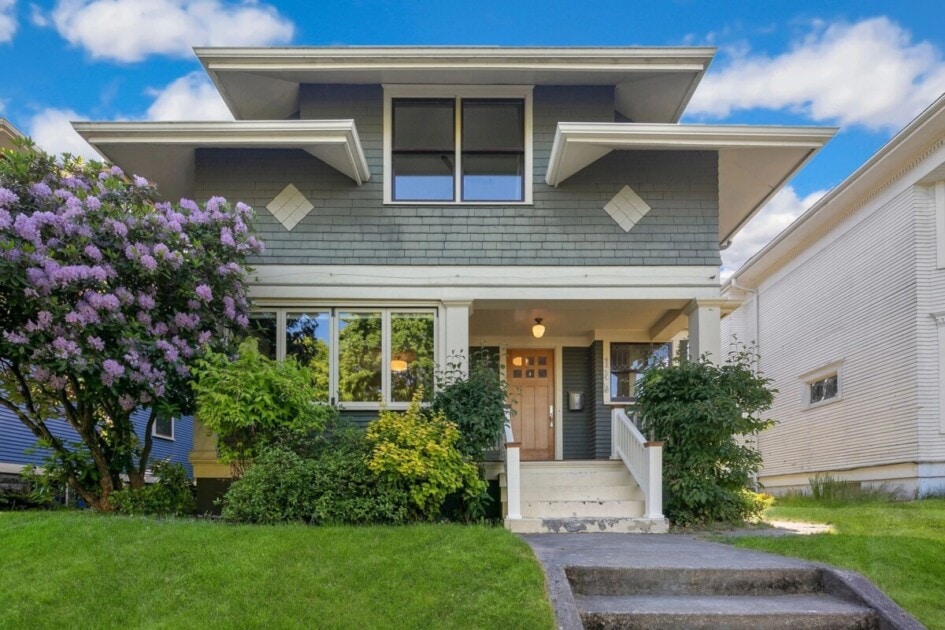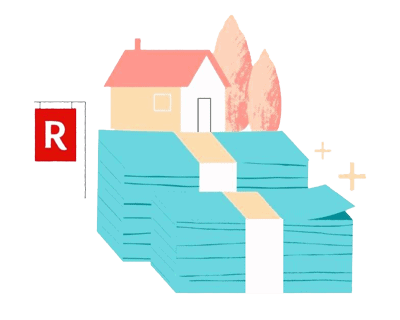
When you’re about to make an offer on a home, your real estate agent will ask how much “earnest money” you’d like to put down. Earnest money is a type of security deposit, also known as a “good faith” deposit, made to the seller of a home. It represents your intent to buy the property by showing the seller you’re serious about purchasing the property. In most cases, earnest money can also act as a deposit on the property you’re looking to buy.
This Redfin article gives an overview of what earnest money is, why you need it, and how much you may need, and how to protect the money once you deposit it.

Earnest money is the money you pay after a home seller has accepted your offer on a house and before closing on the home. Earnest money assures the seller that you as the buyer are acting in good faith, and it provides them with some compensation in case you back out of the deal without a valid, contractual reason.
Once the seller’s agent is able to confirm that your earnest money has been deposited into an escrow account , the buyer and seller will enter into a purchase agreement and the seller’s agent will mark the listing as a pending sale — in effect taking the property off the market. At this stage, various inspections, appraisals, and possibly other contingencies you had in the offer contract move forward to finalize the sale.


If the buyer backs out, the earnest money is paid to the seller. If the deal falls through due to something coming up on the home inspection that would be prohibitively expensive (like a cracked foundation) or any other contingency listed in the contract, the buyer gets their earnest money back.
The buyer and seller can negotiate the earnest money deposit amount, but it typically ranges from 1% to 3% of the sale price, depending on the market. However, if you’re buying a home in a seller’s market (when there are more buyers than homes for sale), or bidding on a highly competitive home, the earnest money deposit might range between 5% and 10% of a property’s sale price.
Be sure to talk to your real estate agent about how much earnest money you should offer in the housing market you’re competing in.
In the strictest technical terms, the answer is no – earnest money is not a requirement when you make an offer on a house. However, your offer likely won’t receive the seller’s serious consideration without putting a good faith deposit down of some kind. Earnest money can act as added insurance for both parties in the transaction.
In most cases, your earnest money deposit is paid to the escrow or title company , which holds it in an escrow account until the transaction closes. If you work with a real estate attorney, the deposit may be put into escrow there. You can pay this deposit with a personal check, a cashier’s check from the bank, a money order, or wired funds, depending on the terms of your contract.
Once the sale of the home has been completed, the earnest money you paid can be applied toward your closing costs or down payment . Alternatively, you can receive your earnest money back after closing. Because the sale went through the home sellers do not get to keep the earnest money deposit.
If you fail to meet your offer’s contractual obligations , your earnest money could now belong to the seller. Examples include:
If you face any of these issues but still want to purchase the house, don’t give up. Have your agent get with the seller’s real estate agent. If you are upfront about the situation, the seller may extend the timeframe.
As a buyer, you can reclaim your earnest money for a couple of reasons:
Other examples of when your earnest money would commonly be refunded:
Having a contingency may also allow you to negotiate the terms of your contract. For example, you may be able to ask the seller to perform repairs or give a credit at escrow to cover the agreed-upon repair costs. Typically, a buyer and seller can negotiate a resolution so the sale can be completed.
Most sellers will not consider an offer without earnest money. Keep in mind, however, that it may be possible to negotiate a work-around. If you can’t afford an upfront earnest money deposit, let the real estate agent and seller know right away. If your purchase method and financing look solid otherwise, maybe the seller will agree to move forward with the sale. If you are serious about the purchase, you may be able to ask a family member or friend to assist with a gift or loan of funds for the good faith deposit.
A word of caution : Before taking a gift, institutional loan, or getting a cash advance on a credit card for your earnest money, be sure to consult with your mortgage lender . Any new gift, bank loan or cash advance that leads to high credit card balances during your transaction timeline could be detrimental to your mortgage loan approval. This deposit is meant to secure the property, not put it at risk of losing it.

Let’s look at an example scenario of how earnest money may play out. Evan and Mia have listed their homes for sale in Washington, DC . Amelia is in the market for a new home and is interested in both properties and can’t make up her mind. In the event that both sellers require an earnest money deposit, three potential scenarios can unfold.
Because Amelia can’t decide which house to buy, she puts a good faith deposit down on both properties, prompting Evan and Mia to take their homes off the market.
Later, Amelia decides to buy Mia’s house. Now, Evan needs to relist their home for sale all over again. Luckily, Amelia’s earnest money is Evan’s to keep because Amelia backed out, which offers some compensation for time and money lost while the home was off market.
After giving it some thought, Amelia decides to make a single deposit on Mia’s home and everything runs smoothly. On closing day, Amelia gets the keys and the deposit is put towards their downpayment.
Amelia makes a single deposit to Mia. However, during the home inspection, Amelia discovers the electrical wiring is not up to code and will be very expensive to update. Luckily, Amelia has a home inspection contingency in the purchase agreement and decides not to buy and gets the deposit back from Mia.
Take the following steps to protect your earnest money against fraud or unjustifiable forfeiture:
Earnest money is an integral part of most real estate transactions. Before signing a Purchase and Sale Agreement to buy a home, carefully review all contingencies, understand how much money you’ll need to pay, and know-how to successfully recover your earnest money if you need to back out of the sale.
If you are represented by an agent, this is not a solicitation of your business. This article is for informational purposes only, and is not a substitute for professional advice from a medical provider, licensed attorney, financial advisor, or tax professional. Consumers should independently verify any agency or service mentioned will meet their needs. Learn more about our Editorial Guidelines here.

Julia is a Marketing Program Manager at Redfin and has been writing for the Redfin blog for the past five years. She lives in Seattle, WA, and enjoys reading, traveling, and spending time with her dog. Julia dreams of a charming craftsman bungalow with sweeping views, a perfect spot to call home.